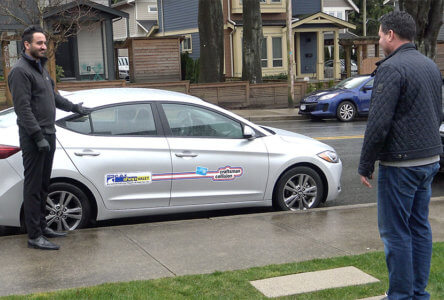Toronto, Ontario — January 30, 2012 — A new study conducted by the Traffic Injury Research Foundation (TIRF) has revealed some worrying statistics about Canadian drivers’ cognizance of safety features, as well as exposing an inflated impression of their own safety on the road.
The study, which surveyed over 2,500 Canadians on various safety features, their priorities when purchasing a vehicle and a self-assessment of on-road safety, revealed that many Canadians are skeptical of recent safety innovations and would be hesitant to purchase a vehicle that utilizes them – despite the fact that some safety features they expressed discontent with come standard on vehicles sold in Canada.
Ten modern safety features were assessed by respondents, who were polled on three factors: their familiarty with the feature, how easy the features are to use and whether or not they would use said features on their vehicle.
A number of respondents demonstrated a disconcerting lack of information regarding modern safety features. Only 23 per cent of those polled said they were familiar with collision warning systems, while an equally worrying 67 per cent said they were not familiar with brake assist systems.
Some safety features, including anti-lock braking systems (ABS) and adaptive headlights ranked higher in Canadians’ awareness.
However, some respondents were still skeptical of the value of basic safety features. Nearly half of the total participants said they would use electronic stability control, while 40 per cent did not see a need for brake assist programs. Traction control only gained support from 73 per cent of respondents, and only 44.2 per cent said they would use a brake override system if it was on their vehicle.
Other active systems have more acceptance, but not much. Only 66.5 per cent would be willing to use a collision warning system, and 60.5 per cent say they would use a lane departure warning system if their car had one. While these systems generally do not have an off switch, the numbers clearly show that many Canadians are not ready to accept advanced collision avoidance technology.
When polled on their own safety, nearly half of respondents considered themselves much safer drivers than their on-road peers. 45 per cent of participants rated their own on-road safety as an 8/10, but gave their fellow motorists a 5/10.
For more information on the results of the survey as well as a relevant safety initiative by TIRF and the Toyota Canada Foundation, please click here.
by Hayden Kenez (News – Collision Repair Magazine, January 30, 2013)









